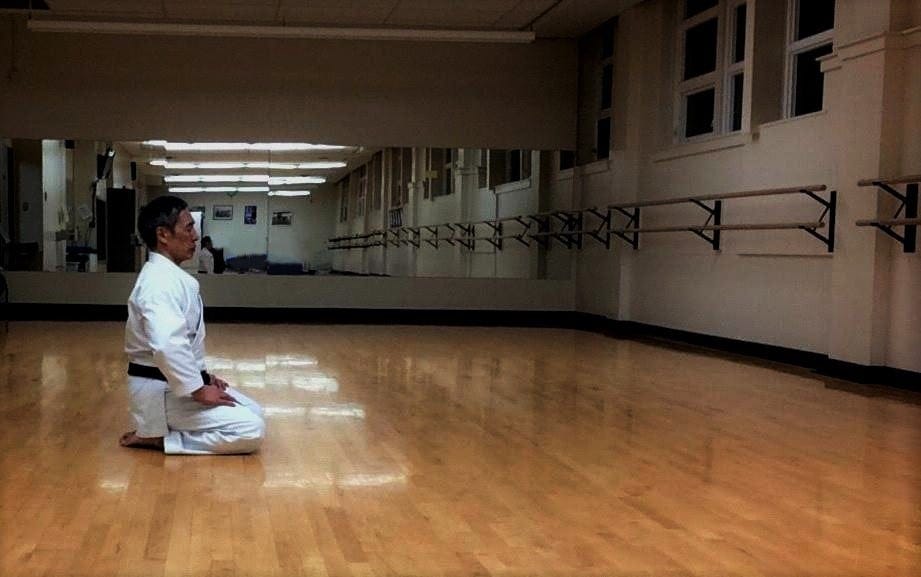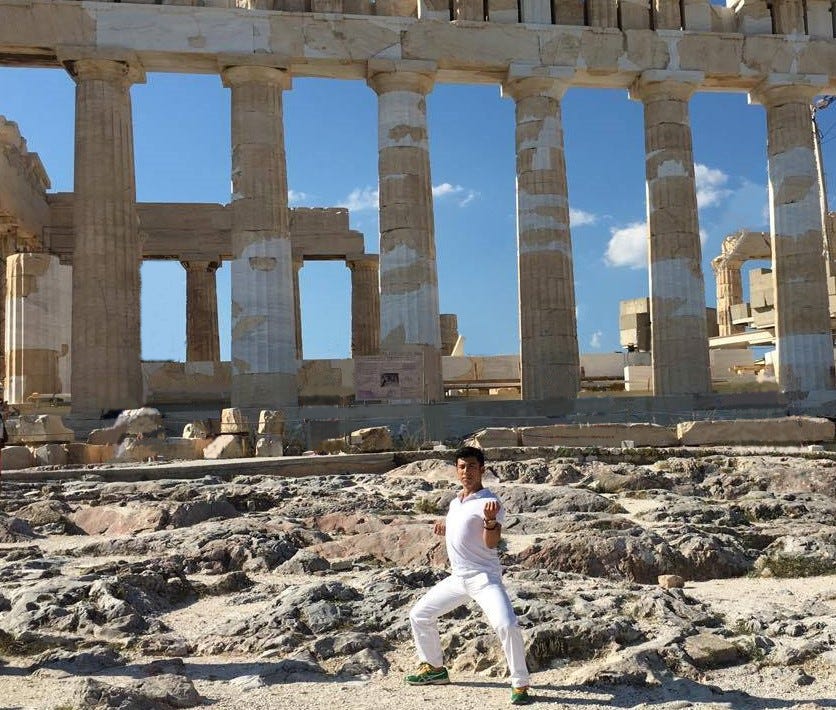Lose Yourself to Find Yourself
A lesson from karate-dō and the stories you love
In 2023, there is acrimonious debate around defending the self, whether it’s asserting gender identity as a fundamental human right or championing the freedom of the individual against perceived government overreach. Perhaps there’s a lesson in a different and less politicized perspective: the way of karate. Most people would see literal and physical self-defence as the raison d’être of karate, but its real relationship to the self (and its loss and gain) is more subtle.
Way back in the 70s, when I was an undergraduate at the University of Alberta, things were less contentious: young people regularly embarked on a quest for the self. The coming-of-age ritual was to backpack through Europe, to travel somewhere far away to find yourself. Even back then, I found the phrase amusing, as if your self was waiting for you, sitting patiently among the ruins of the Acropolis.
Still, it spoke a certain truth about the seekers: they were indeed searching for something essential, something whose lack they felt very keenly. Yet if finding yourself was a cherished destination, it was not a universal one. It was a very Western conceit. In various Asian traditions, including Buddhism, the centuries-old goal has been the opposite: to lose the self. This may seem confounding in the West, because losing yourself is felt as destitution. For instance, one of the real achievements of feminism has been its critique of how patriarchal cultures caused women to be defined, not on their own terms, but by being subjugated to and erased by men who had power and privilege.
But in a characteristic Eastern paradox, the loss of the self can also be seen as a gain. This seeming contradiction is commonly experienced even in the West: if we lose ourselves in a brilliant story or song or theatrical performance, we experience it as anything but tragic or oppressive. We feel raised up, deeply moved, exalted.
The example of stories both bridges East and West and divides them. One thing that distinguishes classical Japanese fighting arts and ways from Western combatives is that the former are linked intimately to literature in a way the latter generally are not. The samurai, the feudal Japanese professional warrior, was schooled in both the art of war and classical literature. The Japanese call this bunbu ryōdō 文武両道, the united ways of the pen and the sword.
When we train in karate-dō, the goal is keiko zanmai 稽古三昧: being absorbed in practice. The self is dissolved by the sweat of focus and training. The Japanese are very serious about this. In Canada, a coach might exhort their athletes to “give 110%,” but the Japanese say, “funkotsu saishin” 粉骨砕身: “crush your body and grind your bones to dust.” Beyond the Japanese penchant for dire hyperbole, karate-dō is, at its heart, very much about a loss of self. Training is revered because the karateka is granted the privilege to both inhabit and embody a tradition much older and larger than themselves. For the karateka who trains hard and long and humbly enough, it’s not about their individual self; it’s about the Way of karate. The late Furuya Kenshō, who was both an aikidō sensei and an ordained Zen priest, said, “lose your small, tiny self and find your Universal Self.”
In this way, loss of the self circles back to finding it. Returning to literature gives a revealing Western example. It’s not uncommon to read a novel or a poem and discover that the author seems to know you better than you do yourself, because that novel or poem articulates something about love, loss, or life that exactly captures your lived experience and passions, in words that you could never have found on your own. Even if you didn’t find yourself at the Acropolis, you might well find that Euripides knew, two-and-a-half millennia before you were born, precisely what your 21st century heart or mind or soul yearns for.
This is why, for some of us, karate-dō is so much more than a way of fighting or self-defence. It is a way to become more ourselves through losing ourselves, by personifying, however incompletely and imperfectly, the forms and foundations of the cultures of Okinawa and Japan. We become absorbed in practice, and thereby absorb what we’ve long sought to be.




